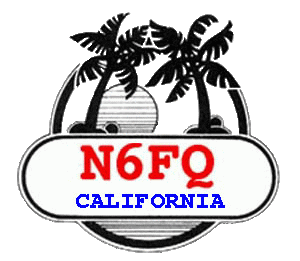Communication A, B, C’s
During public service events, smoke and fire watches, and emergency nets, keep transmissions concise. Drop the ham speak, of long transmissions of extra words and phrases.
Use the communications A, B, C’s.
- Accuracy
- Brevity
- Clarity
Repeater Protocol Suggestions
Testing access: “<your call> testing”. Reply not needed or expected.
Wanting a signal report: “<your call> radio check”. Not expecting a conversation.
Wanting to talk: “<your call> looking for a contact”. Not to be repeated again and again and again.
Wanting to join a conversation: “<your call>”. Wait to be acknowledged.
Calling someone: “<other call><your call>”. No need for more.
During a conversation every 10 minutes: “<your call>”
At the end of a conversation: “<your call> clear”.
Repeater Use Rules
The Fallbrook Amateur Radio Club repeaters operating on 2 meters and 70 cm are primarily used to support community interests of our club members, and in support of community situations, (fires, earthquakes, traffic conditions, and other emergencies).
Rag chewing conversations (over 20 minutes) are discouraged because many people monitor the FARC repeater for local information requests, emergency alerts and traffic. They are usually doing something else while listening to a certain frequency or repeater. Long winded conversations forces some of these serious monitoring people to turn down their volume or lock out FARC on their scanners and in turn may miss important information transmitted later on. If you need to talk that long, take it to a simplex frequency or land line. Checking for additional traffic that might be waiting and using call sign identification often is also important. Fallbrook is a unique area and quick response AR emergency communications are vital.
“Kerchunking” the repeater (keying up the repeater without your station ID) is annoying to those who seriously monitor it, and
is an unidentified transmission that was covered on the Technician Exam. Please always use good operating practices. If you key the repeater, ID yourself, it’s the correct way to operate on Amateur Radio.
Stations must ID each 10 minutes as per FCC requirement.
The Fallbrook Amateur Radio Club and its repeaters are a family oriented system. Profane language is not acceptable under any conditions. What might be acceptable language on CB Radio or in certain circles of life styles are not acceptable on this system. We shouldn’t have to define what words are unacceptable, when in question use your best judgment. If your best judgment falls short of reasonable mature judgment, we’ll let you know. Always keep in mind the repeater is listened to by all age groups, male and female. When using the repeaters always try to be respectful and professional. You are responsible for hams public image. You never know who might be listening, the general public, or public safety personnel.
Short conversations and humor are welcome and refreshing as long as the primary purpose for emergency communications are not diluted or become a distraction from our key purpose. You are asked not to use annoying “street talk” phrases no matter how hip, slick and cool you are, i.e., the repetitious tag “dude” being used is an example. CB type slang is not welcome on the FARC repeaters, this is not Citizens Band Radio. Get in the habit of plain easy to understand language so we can act quicker and more accurately during an emergency. During events, nets and emergencies keep transmissions concise “just the facts”. In accordance with FCC rules the control operator has the final word and his directions must be followed or the appropriate corrective actions will be taken.
Also, store your mobile radio microphone on a proper hanger. Microphones that are left on a seat or stuffed in the center console can cause accidental pressing of the PTT, (Push To Talk) button, causing jamming of a repeater frequency. Most radios have a TOT, (time out timer), function the helps with the stuck microphone syndrome, by issuing a warning tone and shutting down the transmitter, so set yours to two minutes or less.
Cross band repeating into a repeater needs the control operator approval and should be used with great caution and monitored closely, and always use a tone squelch, also known as CTCSS or DCS on your cross band link, and use proper band plan frequencies.
VOX, (Voice Operated Transmit), is not really compatible with a repeater system and is far to easy to leave activated causing interference.
The FARC Club Officers
and N6FQ trustee
Last update 08/25/2022
